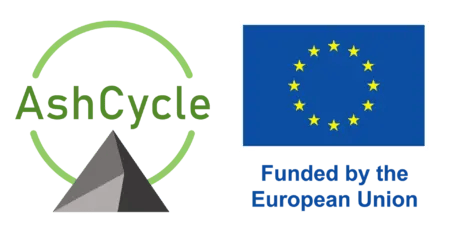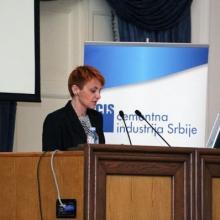Project Name: Integration of Underutilized Ashes into Material Cycles by Industry-Urban Symbiosis
Description
Ashes from the incineration of municipal solid waste, biomass and sewage sludge are currently underutilised and a part of them ends up in landfills. With them, a significant number of metals, nutrients, rare earth elements and industrially valuable minerals contained in the ashes are lost as well. Moreover, landfilling of ash costs at least 100-500 euros per tonne, and the costs are only expected to increase in the future. The AshCycle project will provide tools for reducing the waste generation by developing new utilisation possibilities.
In the transition to a climate-neutral economy, the social dimension of industrial transformation must not be forgotten, as energy industry and construction sector are an essential part of the EU's economic and industrial structure. Involving the community in its actions increases the social acceptance of new solutions, and tailor-made activities for children, women and civil society ensure a broader understanding of the new technologies and better integration of Industrial-Urban Symbiosis (I-US) concepts. Through various AshCycle events, strong and effective partnerships will be built between local communities, businesses, academia, and civil society for knowledge transfer to respond to industry needs and consumer uptake.
Standardisation activities are addressed as part of the WP Environmental assessment, regulations, and standardisation. Task description related to the standardisation:
For new developed products before they are positioned on the market, and especially if they are in building sector,
specific regulation is applicable (in Europe) which is set in Construction Product Regulations (CPR, No 305/2011)
and lays down harmonised rules for the marketing of construction products in the EU. CPR foresees either harmonised European norm (hEN) or European Technical Assessment (ETA) to be followed in technical evaluation of new innovative products. European Technical Assessment (ETA) is alternative procedure which is developed by EOTA (European Organization for Technical Assessment); participant ZAG is member of EOTA) The basis for the ETA preparation is a corresponding European Assessment Document (EAD). Third option for legally putting products on the marker are national technical approvals, but herewith the procedures differ among member states.
Within this task a roadmap with step-by-step instructions on how to test and how to position product on the market will be taken for all innovative solutions developed within AshCycle. In addition, in this task attention will be paid to explaining the use of the new developed products and their application within the CEN standard committees and within the national mirror committees in order to create a general consensus for the use of them and to introduce them with the needed characteristics in the current and new standards.
Reason for applying to HSbooster.eu services
ZAG covering this point is very familiar with the standardisation process. Nevertheless, they believe that with the help of HSBooster they can find a way to more effectively influence changes to existing standards. Especially because the EU is also strongly committed to the circular economy, and in order to promote it, standardisation needs to be supportive.
ZAG is a member of CEN /CENELEC and also EOTA and they are familiar with the procedures, but some activities with these organisations (like Project Bridget and Bridget 2 in the past and now HBooster) might provide some additional information useful for the project.
Project Acronym: AshCycle

Grant Agreement Id: 101058162
Start Date:
End Date:
Programme: HorizonEurope
Call for proposal: HORIZON-CL4-2021-TWIN-TRANSITION-01-14 - Deploying industrial-urban symbiosis solutions for the utilization of energy, water, industrial waste and by-products at regional scale (Processes4Planet Partnership) (RIA)
Funding Scheme: HORIZON-RIA



